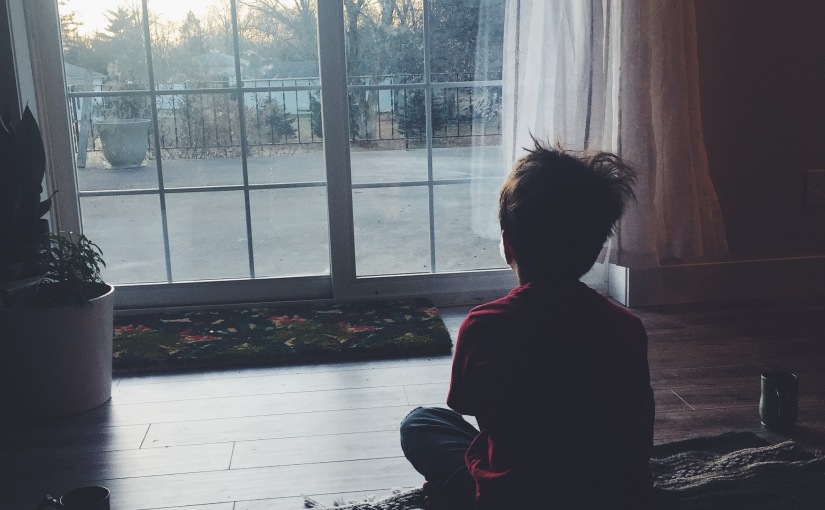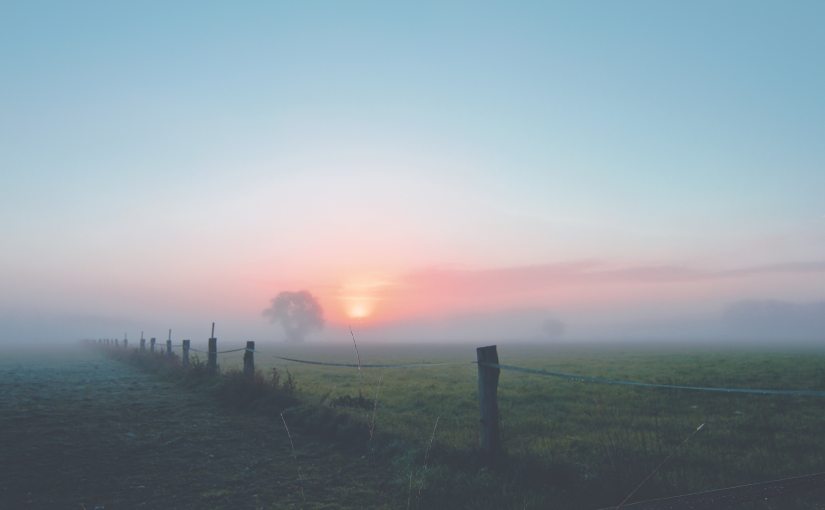I recently told my husband that one of the things that made this holiday season feel so strange is that it is the first one experienced without any external validation. Almost all of our Advent/Christmas traditions have gone by the wayside as a result of the pandemic leaving us in unchartered territory: how do you celebrate a season of joy while in a season of despair?
The emotions are heightened this year. I’ve spent nearly every single day home alone with my children. Since March when the shutdown first began, I’ve discovered the many ways that I’ve used people and experiences and distractions to keep me from being present. I’ve grown as a person in both gratitude and perspective. I’ve experienced joy in simple pleasures and discovered how narrowing my focus expands my ability to enjoy.
But this same togetherness has has also left me weary. Restless. Desperate for space. And yes, sad.
I have not blogged since my last post about losing my grandma – and my friend – in 2019. I reached for my phone the other day to type of a message to her, asking her for a relative’s address, before a wave of emotion crashed over me. She is not here. It still takes me by surprise. It still hurts.
My grandma loved Christmas. I’ve been remembering her with an enormous grin on her face, leaning forward and singing, “You better watch out, you better not pout, Santa Claus is coming, to town.” She loved to buy presents and gather her family around her. She had this way of knowing exactly what kind of toys my kids would love. I think it was part of her own childlike sense of wonder.
Growing up, my dad told me it drove him crazy how over the top she was about Christmas. And maybe that it part of the reason grandchildren can have the type of relationship they have with grandparents but can’t have with their own parents. Sometimes you are too close to see things (or maybe appreciate things?) for what they are.
For a few years when I was a kid, we lived in Indiana. I grew up in Ohio and we would eventually return. But for four years, we lived in a little town called Centerville, Indiana. One Christmas, my grandma came out to visit. Since we didn’t have family nearby, we had started a new tradition of eating dinner out on Christmas Eve. She joined us at our favorite spot, a dimly lit, historic home turned restaurant called, The Richmond Inn. I wore a white button down shirt to dinner and as one waitress passed me that night, she spilled the contents of her tray on me, including a glass of ruby red wine. After the initial shock wore off and the waitress ran off to find me a towel, grandma just laughed and said, “Well, Rebekah, you’ve had your first glass of red wine!”
We went to the Christmas Eve service at our church, and spent the following Christmas day at home, opening presents, eating, and simply being together. We didn’t have anywhere to go or anyone to see, as we were still strangers in a new place. But for that day, it felt like enough. Just to be together.
Much like my blog, I haven’t returned to church since the Christmas Eve service we attended at our church last year with my husband, our kids, my brother and sister in law, and their kids. Shortly after Christmas, my youngest son came down with a horrible virus that lasted until March 1. The lockdown came shortly after.
Our church re-opened some months ago, but with no childcare. And maybe it’s the weariness or maybe it’s the sadness but I’ve not been able to bring myself to suggest that we return, to sit masked in a row with our kids whom I am always with while I inevitably have to leave early because our noisy and restless two year old won’t sit still.
The sense of loss this holiday season is ever present. I hesitate to share this, but sharing is what makes me feel human and less alone. So I will share, and risk comments of spiritual bypassing that tell me “God is good” or “but you still have…..” All these things might be true. But the sadness and sense of loss is real, and remains. It sits alongside the other “shiny happy things” I also know and believe to be true just like the mud currently peeking out from the light dusting of snow in our back yard.
The snow is beautiful. But my eye is drawn to the mud, and it casts an air of sadness over even the beauty.
This winter, I’ve mourned my grandma, the loss of connection and life as we knew it pre-pandemic, and even a sense that the God of “Silent Night” and candlelit services is slipping from my grasp.
Through it all, though, I’ve had this nagging sense that perhaps this will be the most genuine and true Christmas. Rather, it is the Christmas promise that all our days would be “Merry and bright” that suddenly rings false and empty.
I think we’ve all known that this wasn’t entirely accurate. I think we’ve all felt a tinge of doubt and sadness around the holidays and have simply passed it off as too much sugar, too much consumerism, too much busyness, when in reality, the sadness wasn’t because of anything. The sadness was the thing.
Growing up in a conservative church, Christmas was a time of celebrating the birth of a coming savior. Someone who would rescue us from our sins. But if this year has taught me anything, it is that the birth of Jesus who would face a fate of death just like every other human who walks the earth, it is that Christ is not just with us; he is us. He asked to be saved from his fate of suffering and in the end, he was not spared. None of us are. But the words he spoke to the thief on the cross next to him have stayed with me. The promise that God will always be with us. In life. In suffering. In death.
I have had moments this holiday season of enjoying the simplicity. My days are much the same, leaving space around the margins for baking Christmas cookies whenever we feel like baking them, and not because our Advent calendar gave us that task for the day. Again, my focus has narrowed to the people and things within the four walls of my home, and I’ve found that both liberating and claustrophobic.
For this year’s Advent, I’ve scrapped the normal list of activities that I’ve personally curated over the years and have opted for simple evening readings from a book that was gifted to me last year but never read – forgone for the more exciting activities that life offered.
As I read the introduction quietly to myself, emotion ran over me and through me as previously unacknowledged feelings were named for me in the text.
“The dark end of the year brings unrest. It is an end. It comes without our asking and makes plain how little of life’s course we control. This uncertainty, we don’t know how to mark. And so it marks us. We feel weighted, gloomy even, and we feel guilty because voices everywhere in myriad ways sing out, ‘It’s the Most Wonderful Time of the Year.’….The church history book that got hold of me told me that my own annual December sadness was no reason for guilt. It was a sign of being wide awake to the world, awake enough to sense the loss. And furthermore, there was a way to engage that sadness.
That way was Advent.”
-All Creation Waits, by Gayle Boss
The book we’ve been reading shares with us, day by day, how common woodland animals prepare for and survive the dark and cold winter days. Days of loss and lack. Days of scarcity and suffering. But also, days that look forward to a future not yet known, but hoped for.
The easiest thing we can all do is offer each other platitudes full of love and light that help us spiritually bypass the pain. But maybe the lesson of a baby born in a manger, destined – just like us – to die, is that bypassing pain is not the point. We are like the Painted Turtle that we read about on day 1 of Advent. In times of darkness, the invitation is to slow down and pare down. To face the ache and the darkness and the scarcity with a simplicity born of both acceptance, and hope. And to trust. That the sadness we feel is just as important as any tidings of great joy. We can be awake to it all. We can engage with the seasons and the feelings as they come. And we can know that every season contains and element of preparation. Sometimes for joy. Sometimes for grief. Usually a bit of both.
But always, always, for for something new.









